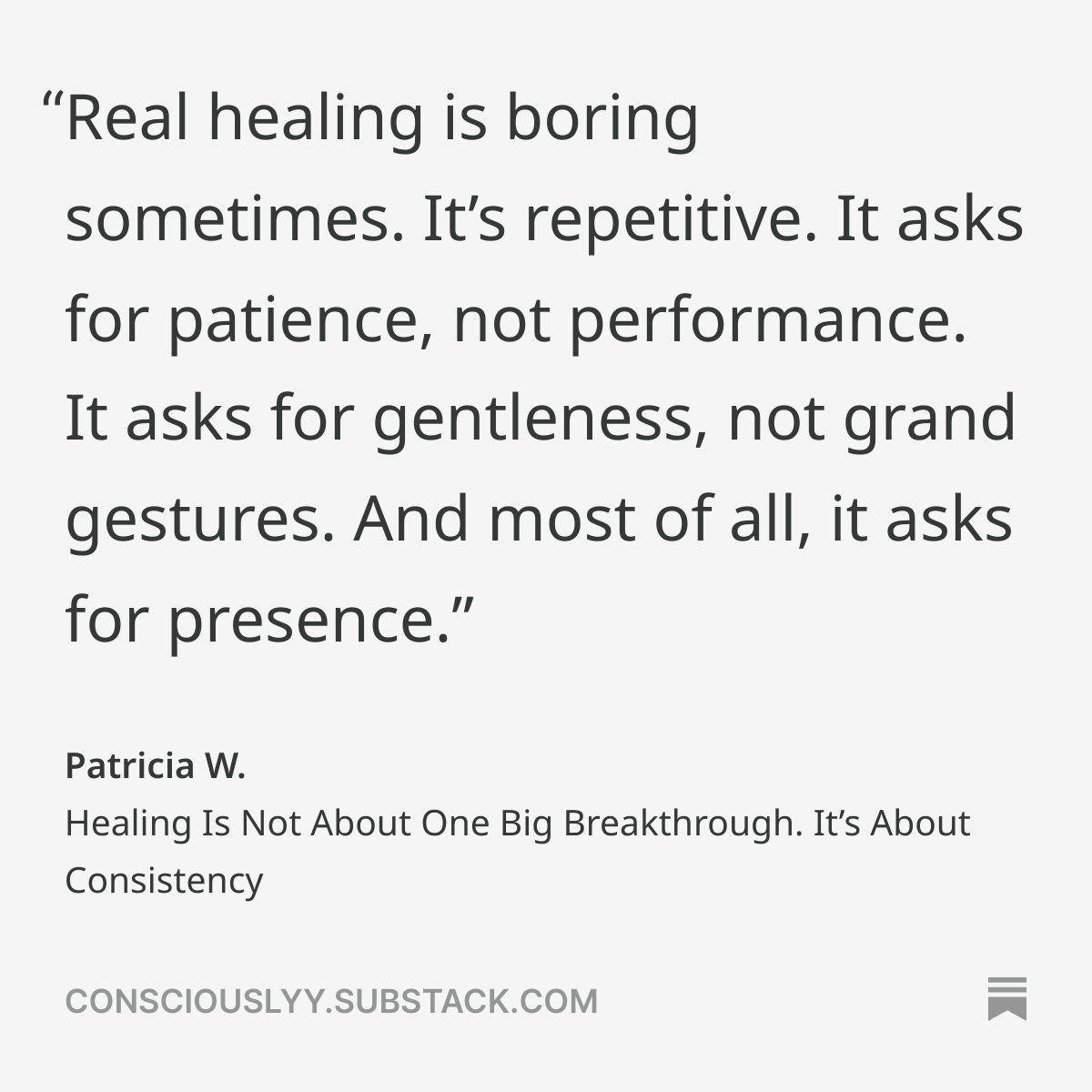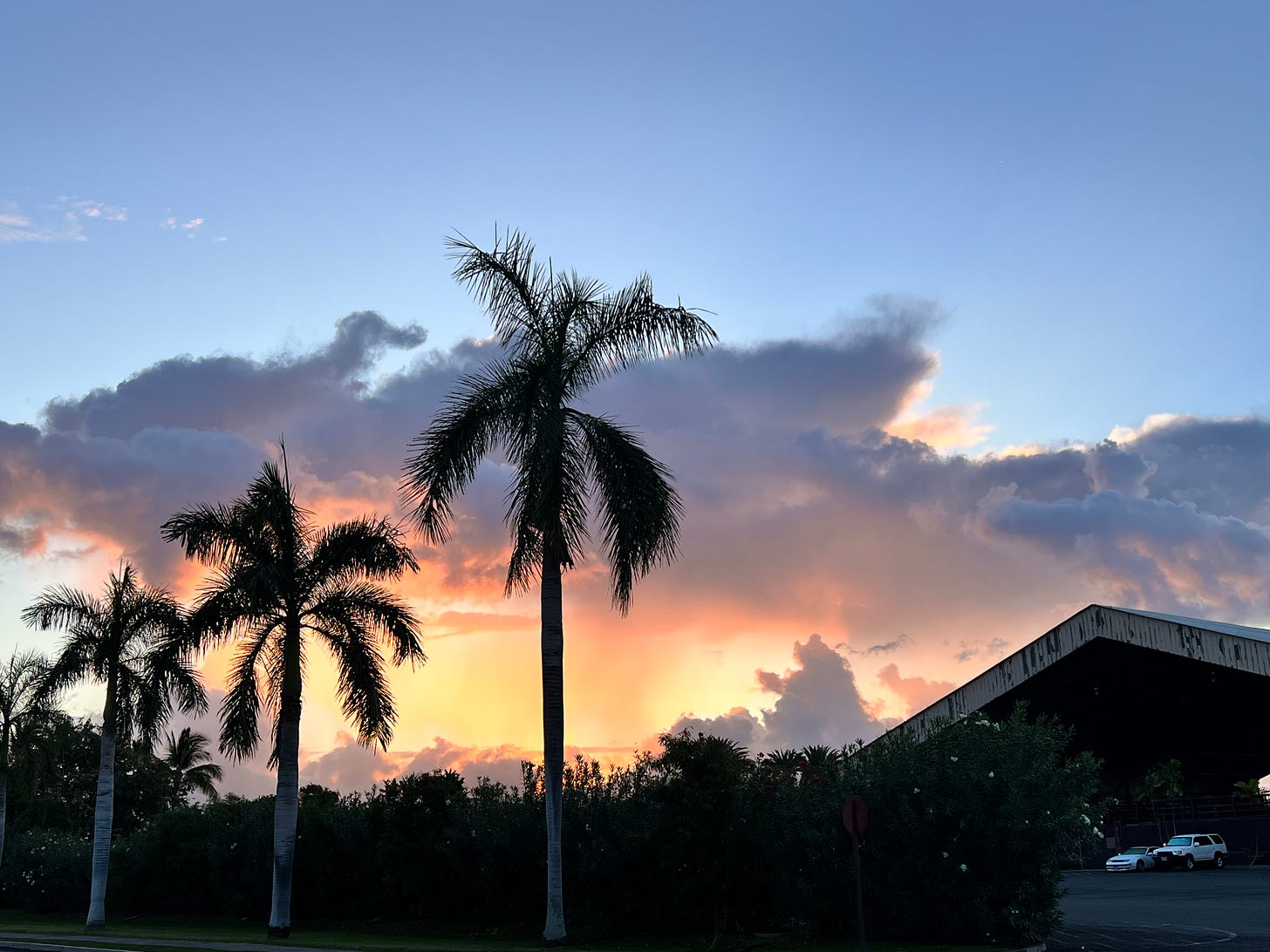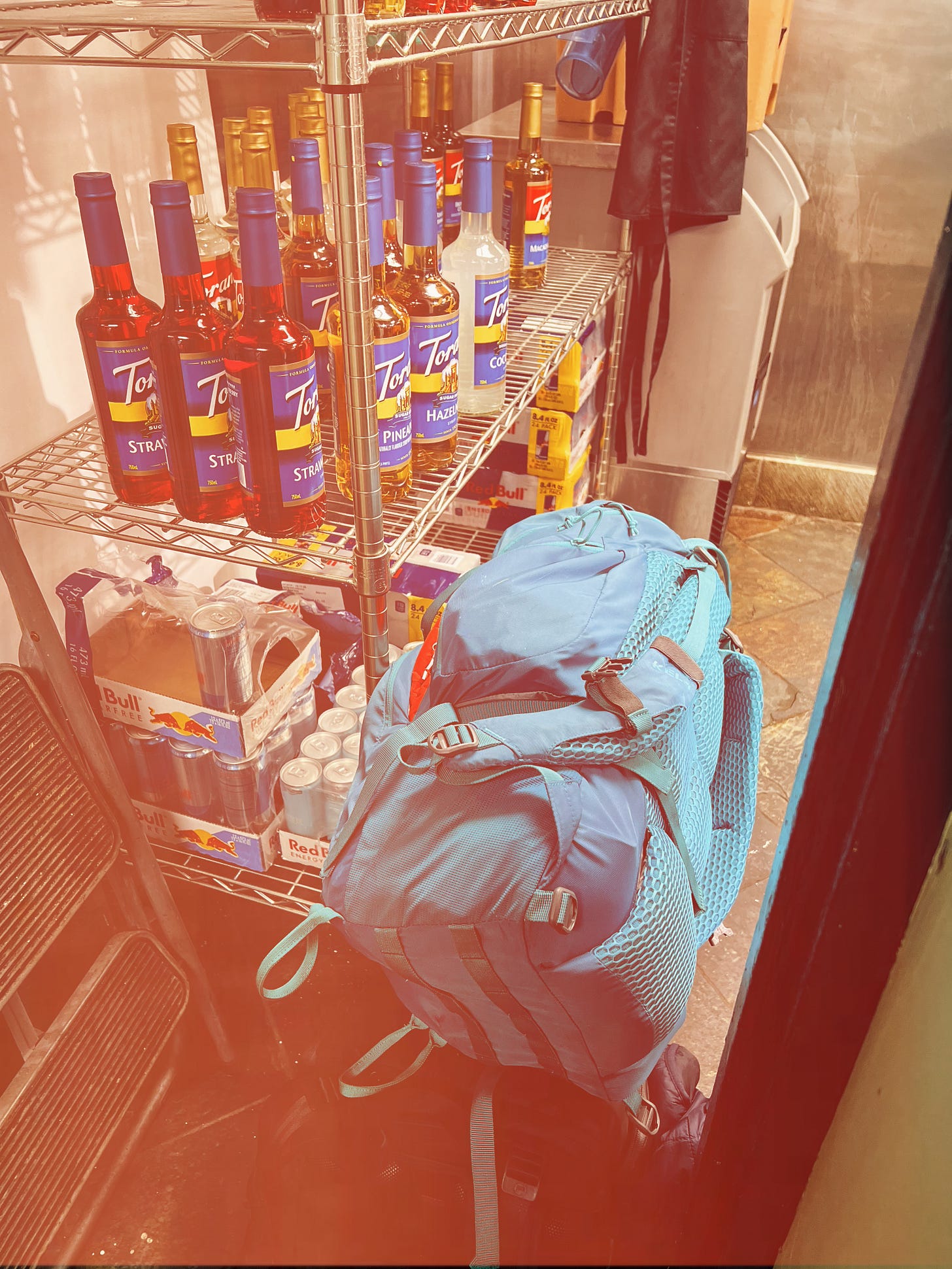About This Series
Wander, Wonder, Write is a two-week daily travel journal documenting a homeschoolers’ adventure across east Asia—just me and my 13-year-old daughter. From Space-A flights and Korean street food to shared songs and unexpected detours, this series is about more than just seeing new places. It’s about staying present, asking better questions, and finding meaning in motion. New posts every day as we explore the world, learn from it, and try to write our way through it—together.
This is Part Five of the series. You can read earlier parts here:
Know a homeschooler or world traveler who might appreciate this series? Please feel free to share it with them!
Introduction
I awoke to the distant cries of tropical birds and the deep blue light of pre-dawn that filtered softly through the wide wooden slats of the window blinds—a common style here in the islands. The air was perfectly still, unmoving. The quiet held everything in suspension, as if the world itself hadn’t yet decided to begin.
The previous day’s travel from California to Honolulu had been as smooth as could be—no hiccups or delays, no worries or troubles of any kind. And yet, by midday yesterday, I felt a familiar darkness creep in. For reasons I can’t explain, my mind grew restless, clouded by thoughts that tugged me away from the present moment, draining the simple joy from living and turning even the smallest tasks into burdens. And this morning, instead of rising with anticipation of a full day on the island of Oahu, I awoke with a veil of darkness that made getting out of bed a chore.
I don’t live a hard life. My problems are not immense. I don’t carry the kinds of burdens others do—loved ones battling terminal illness, or bitter, unresolved relationships that rob people of peace. My problems feel, at times, embarrassingly small. Sure, what happened to me was real, and recovery has been hard and slow. I have done a lot of work to heal from that. But I am learning, again and again, a cold, hard truth: healing takes something I am always in short supply of: patience. As Patricia W. puts it:
With a heaviness in my heart, I rose and settled cross-legged on the floor, beginning my morning ritual of twenty minutes of meditation. I quieted my mind and tuned in to my body. I listened to the subtle sounds of the room—the steady hum of the air conditioner, the rhythmic whir of the ceiling fan, the soft birdsong heralding the coming light. I felt the firmness of the hardwood beneath my feet, the solid wall supporting my back, the gentle contact of my fingers resting together in my lap.
As I noticed these things, I reminded myself: I am not my mind. My mind dwells in the past or fixates on the future. It does not know how to live in the present. Only I can do that. And when I am truly present, I am enough. I don’t have to worry about the difficult choices that await me—decisions about my career, my relationships, my life. I don’t have to wonder what the day will bring, or whether I’ll have the stamina to maintain a positive attitude as we press further across the Pacific, crossing the international dateline, sinking deeper into jet lag. I don’t have to revisit hard conversations or replay painful memories. I can just be.
And just like that, twenty minutes passed. I opened my eyes. I wasn’t whole. I wasn’t fixed. But I was centered.
I rose from the floor and noticed the color of the light streaming through the wooden slats of my window. Outside, towering cumulonimbus clouds began to glow with soft yellows and pinks, catching the first light of day. A warm, golden corona swelled behind the nearby green mountains, gently announcing the sun’s arrival. I stepped out of my bedroom and quietly checked on the kiddo—still fast asleep, peaceful and serene, untouched by the weight of the morning.
I grabbed my keycard and quietly slipped out of the hotel. The scent of hibiscus and plumeria hung thick in the warm, humid morning air—powerful, sweet, and unmistakably Hawaiian. I walked barefoot across the thick, springy grass, its cool dew clinging to my feet. I paused and took in the rising sun in all its glory, blooming in soft pinks and radiant golds, peeking through the palm fronds that swayed gently in the breeze.
With a mixture of gratitude and humility in my heart, I spoke quietly to myself, just under my breath.
This is my life.
This is my life.
I have no problems.
This is my life.
Thank you, God. I don’t deserve what I have. Now is the only perfect there is—right here, right now. Let me be present today. Let me return to the peace and stillness I’ve come to know and cherish in these recent times. Let me be present for my daughter.
There is so much I want to teach her, to show her, to explain. And yet, right now, I feel completely unqualified to teach anything. All I have to offer is my story. That’s it. I pray that it’s enough.
I closed my eyes, breathed in the fresh island air, felt the warmth of the sunlight on my face, and let tears roll down my cheeks. Sadness. Joy. Gratitude. It was difficult to parse them out. Presence was all I knew to be true right then.
Presence was enough.
But it had taken work to get there. That moment of presence—so simple, so whole—wasn’t something I had simply woken up to. I had to fight for it, to sit in stillness, to face down the storm inside my mind. I am learning that healing doesn’t come all at once. It comes in fragments, in flickers of peace that grow brighter over time if I stay patient, if I keep showing up. Maybe that’s all this trip really is?
Just me showing up.
The kiddo stirred as I reentered the hotel room. In the small bathroom, I shaved while she stood beside me, combing her hair. We shared the space easily, giggling and trading silly jokes. Afterward, we dressed in shorts and t-shirts, light and comfortable for the day ahead, then headed out together for breakfast at a nearby café overlooking the water.
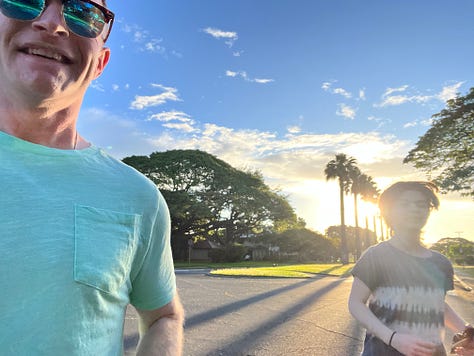
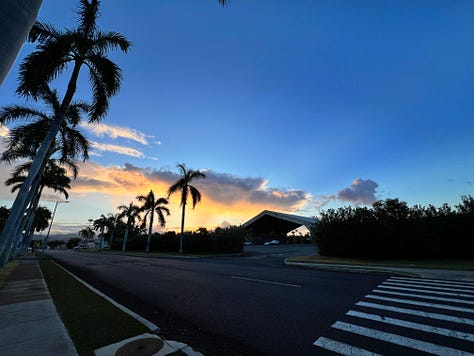
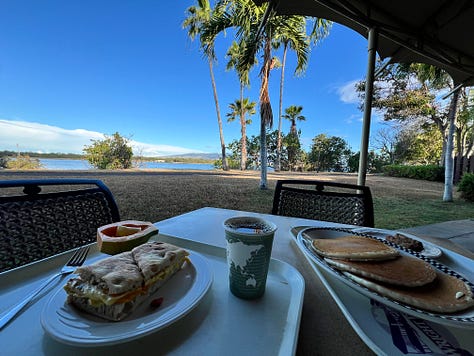
Almost a decade earlier, my ship had passed through these very waters, returning home to a hero’s welcome. Now, nearly ten years later, I found myself sitting in a café just above those same waters, eating fresh papaya in the early morning sun; sipping hot coffee while the breeze stirred the palms and the ocean stretched out like a mirror of the sky—blue, open, endless.
And I took it in, all of it.
How far I have come. How much I have been given. How lucky I am to be here, on a quiet Friday morning, with my daughter, alive and in peace.
And yet, as I sat there in that resplendent morning air, eating delicious food and enjoying the playful banter of my daughter’s witty comments, I felt it return. That old, familiar darkness. That cold sadness that seeks to pull me down and cloud my ability to see the wonders around me.
I grew sorrowful and quiet, wrestling with thoughts that refused to let me be.
So many of my friends will never have an opportunity to enjoy this kind of moment with their families again…
Where are you now, dear friends?
What happened to you wasn’t fair.
I wish I had been there.
I wish I had done more.
I hope you approve of how I am carrying on—how I am living my life, the decisions I am making.
I miss you, dear friends.
I am doing my best to live the way I think you’d want me to live.
To find joy where I can.
To stay present.
To keep going.
Please forgive me.
The weight I’d carried that morning hadn’t vanished—it had simply loosened its grip. That’s the rhythm of healing: contraction, expansion. Shadow, then light. It takes time. It takes patience. It takes starting over, again and again. Even after a moment of peace, the darkness can return. And that doesn’t mean I’ve failed—it just means the work is still unfolding.
And so, with compassion and patience, I let those thoughts go before they threatened to drown me—before they dragged me back into the darkness I fought so hard to rise from this morning. Gently, I shifted my focus to the easy rhythm of conversation with my daughter as we began our walk back to the hotel.
We talked about life, hairstyles, TV shows, music, and culture. We pointed out the flowers blooming along the path and marveled at the variety of birds darting through the early morning sun. Light topics. Simple things. Nothing too deep or weighty—not on that walk. And I was grateful for that.
I didn’t think I could have carried anything heavier just then.
Spam, Sunshine & Serendipity
At the terminal, we hit our next snag: there was no luggage storage anywhere. Signs everywhere warned us not to leave bags unattended, and we had six hours before flight check-in. The plan had been simple: get to the passenger terminal, stash our bags if possible, then head into town—maybe stroll along the beach, grab some local flavor, soak in a bit more island life before the long, 7.5-hour flight to Guam.
Now? We weren’t so sure.
Other families camped out in corners with iPads in front of their faces. Others left one person babysitting gear while the rest ventured out. This wasn’t looking like the relaxing final day in Hawaii I had envisioned.
I wandered through the terminal, scanning for options. If I am good at anything, it is improvising, and I was already hatching a plan.
I found a small coffee shop tucked along the far wall. Inside, a few women were behind the counter, chatting and laughing as music played from a portable speaker on the shelf. They danced and sang along like no one was watching, laughing and having a great time while grilling paninis and brewing iced coffees. The music was excellent, with great beats that made it impossible to stand still! The Roots, Foster the People, Mute Math—my kind of vibe, warm and familiar. These were my people. An idea formed as I took in the scene before me.
I approached the counter and made small talk.
“What did people usually do with their bags?” I causally asked, leaning in.
They shrugged. I explained our situation, cracked a few jokes, turned on a little charm—just being me, doing what I do.
One of them looked around to be sure she wasn’t overheard; a mischievous and playful look on her face. Then, with a wink and a smile, she said “You can leave your stuff here!”
They took our gear and stashed it in their pantry, nestled between bags of coffee beans and towers of syrup bottles. My daughter and I bought two large drinks, said our thank-yous, and toasted to good fortune and generosity.
Once again, the day opened to us and we seized it. A small act of kindness had opened the door to a few more hours of freedom. We stepped out of the terminal, light and grateful, ready for whatever came next.
It turned out to be a day of pure deliciousness.
We walked across base to visit Battleship Row, enjoying the warm air and the occasional rustle of wind through the palms. Along the way, we spotted ripe mangoes scattered across the sidewalk like forgotten treasures. I picked one up, peeled open a section of skin, and took a bite—perfectly soft and sweet. My daughter watched skeptically, then decided to try for herself.
“Oh my gosh,” she said, mid-bite, eyes wide. “I can’t believe fruit like this just falls off trees and lands on sidewalks. And we can just… eat it!”
She gushed about that mango for the rest of the day.
Later, we stopped for snacks at a roadside stand—Musubi for the win! Musubi is an Asian treat ubiquitous in Hawaii and all points west, made with a slice of spam, on top of an evenly sized collection of rice, held together with a wrapper of nori (seaweed). Mmmm… delicious! Later, after the heat of the sun had baked our necks and we had walked long enough to require more nourishment, we returned to the cafe where we stored our bags and ordered the most amazing hot honey chicken and waffle sandwich you could imagine! It was so good we went back for seconds. I wasn’t even sorry. Worth it.
As always, we made friends along the way. A man stopped to ask about my daughter after overhearing her use words like ethereal and perspicacious. He introduced himself as a teacher, and he lit up talking with her. Later, a woman struck up a long conversation with R about the economics of tourism in island communities. Meanwhile, R waved at toddlers, made silly faces until giggles echoed around us, carried on conversations with anyone who would listen. Everywhere we go on this trip, we end up chatting with strangers like old friends. That is the magic of travel, if you let it happen.
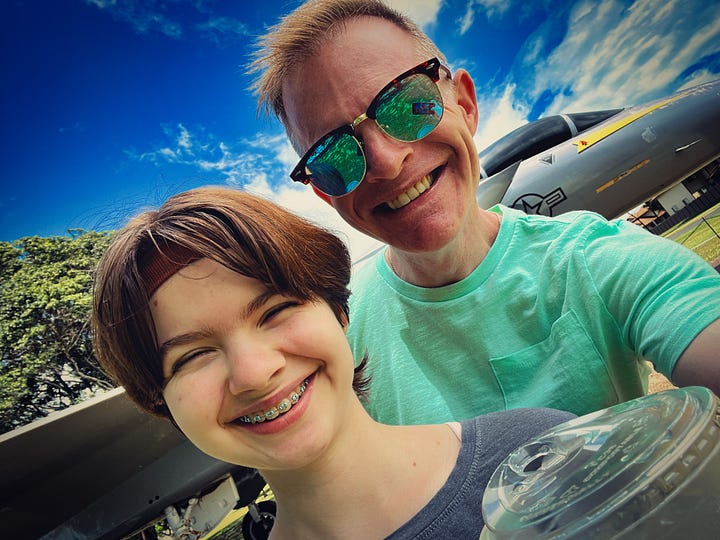
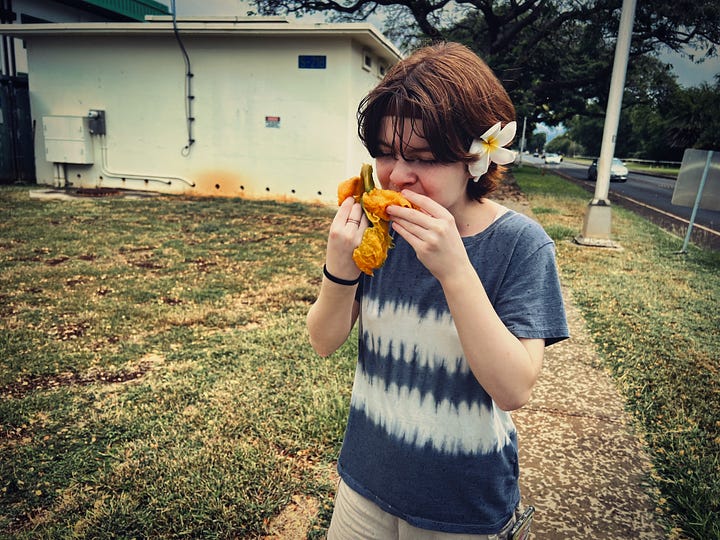
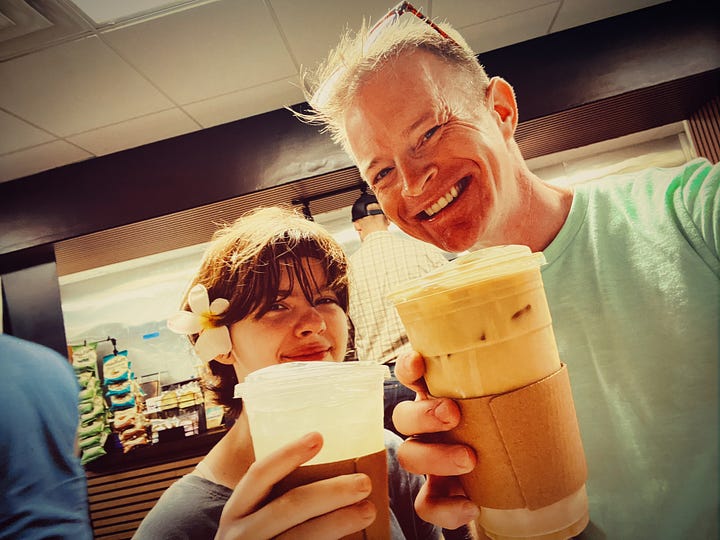
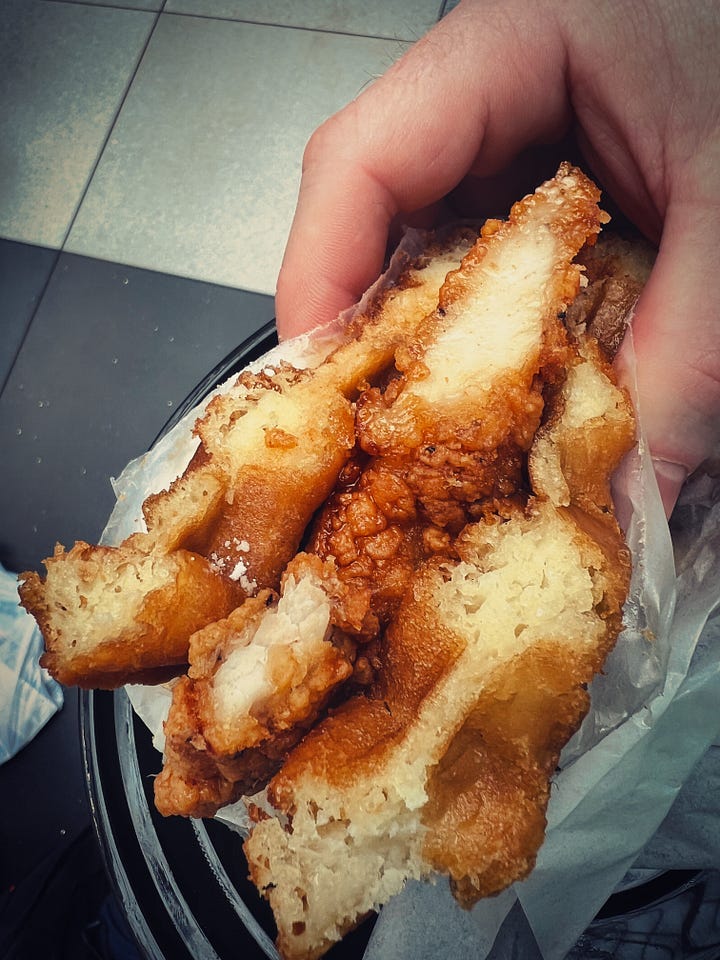
When we returned to the passenger terminal to check in, we learned we’d be in Guam for about 27 hours before continuing on to Korea! It was becoming increasingly clear this trip was less about the destination and more about the journey. The destination felt like it kept getting pushed further away… and yet, we have had nothing but laughter and adventure. Nothing to complain about. There was something profound in that.
A few hours later, we boarded a shuttle bus and rode across the tarmac beneath a sky streaked with sunset. Our C-5 waited like a steel giant. We climbed the two-story stairs into the passenger cabin, found our seats, and soon we were airborne again, heading west across the Pacific to the island territory of Guam.
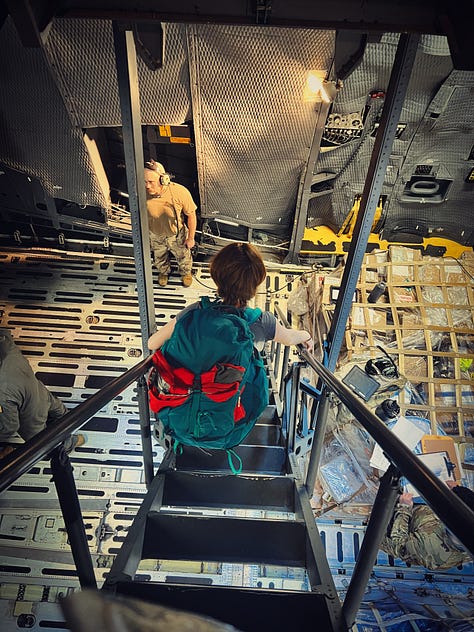
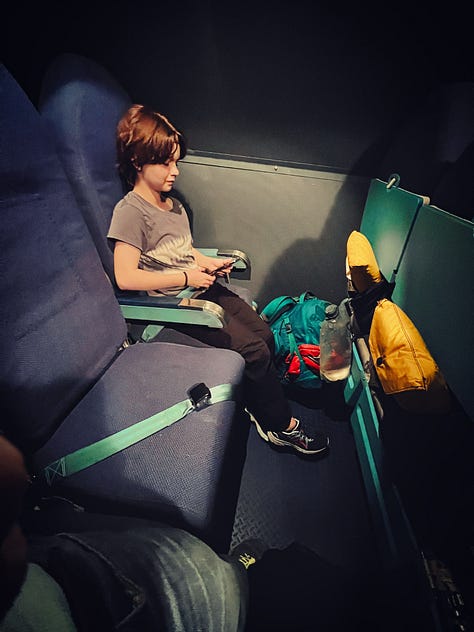
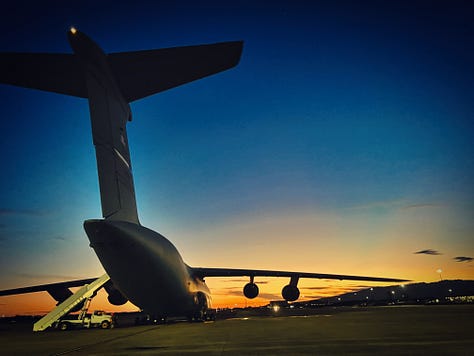
We played cards. We watched a show. We talked. We laughed.
Life is easy with this one. Always has been. We were cut from the same cloth—aligned, in resonance. Every moment with her feels like a gift.
Later, I drifted off for a nap, only to be gently nudged awake some time later.
“I feel sick,” she whispered.
The cabin was stifling. The crew chief had warned me earlier that the environmental controls were malfunctioning—it was either full heat or none at all. No middle ground.
I guided her to the lavatory and stood beside her, fanning her with a folded paper. Her face had gone pale, her body limp with nausea. I considered our options. Heat plus motion often creates nausea. I remembered that the front of the aircraft felt noticeably cooler than where we were seated. I grabbed an airsickness bag, took her by the hand, and led her forward, past rows of passengers, into that precious pocket of cold air.
We sat quietly in the cool. I spoke to her softly. Held her hand. Stayed close. Slowly, her color returned. Her eyes grew clearer. She improved.
Moments like that don’t usually happen to dads. That is solid mom territory. Dads have it rough sometimes—not because they get less credit, but because they often get fewer of these moments. Most aren’t around enough to be changed by the work of parenting. They miss the growth that comes not from providing or protecting, but from showing up in the middle of the night, sharing space and being present until the pain subsides. Often, they just don’t know what to do. I certainly didn’t at first. Since becoming more involved with my kids and taking on the role of primary caregiver for trips like these, I have had many of these types of moments.
Last year, I remember staying up most of the night reading Anne of Green Gables to my daughter in a hotel bathroom while she wrestled with brutal cramps. She finally fell asleep in my lap at 2 a.m., and I remember thinking how rare it was for me to get that kind of experience.
For most moms, those kinds of experiences are just another Tuesday.
But those experiences are what forms us. Those are how children change us. Those quiet, thankless moments of presence are what teach us, viscerally, the meaning of sacrifice. Of a kind of love that shows up. That character building is seldom available to dads. They don’t get that kind of soul-shaping experience simply because they’re not typically included in the daily work of parenting. How many miss out on the quiet holiness of ordinary care? Sitting beside her, half-awake in the middle of the night, fighting fatigue, halfway around the world in the middle of the Pacific Ocean, watching her breathe deeply and try to calm her nerves and upset stomach, I reflected on how much I’ve grown through this full-time parenting life than I ever imagined possible. It’s hard. It’s relentless. But I wouldn’t trade it for the world.
Once she was feeling better, we returned to our seats and queued up another show. We talked some more about plot structure and foreshadowing—nerding out the way we do. At one point, she pulled my arm around her and rested her head on my shoulder.
“You know,” she said quietly, “I’m really lucky to have you as a dad. You’re caring and compassionate… and fun to be around.”
I smiled.
“Thanks,” I said, keeping it simple—overwhelmed, but not wanting to make it a moment.
She paused.
“But you should work on your jokes.”
Like I said: dads have it rough.




